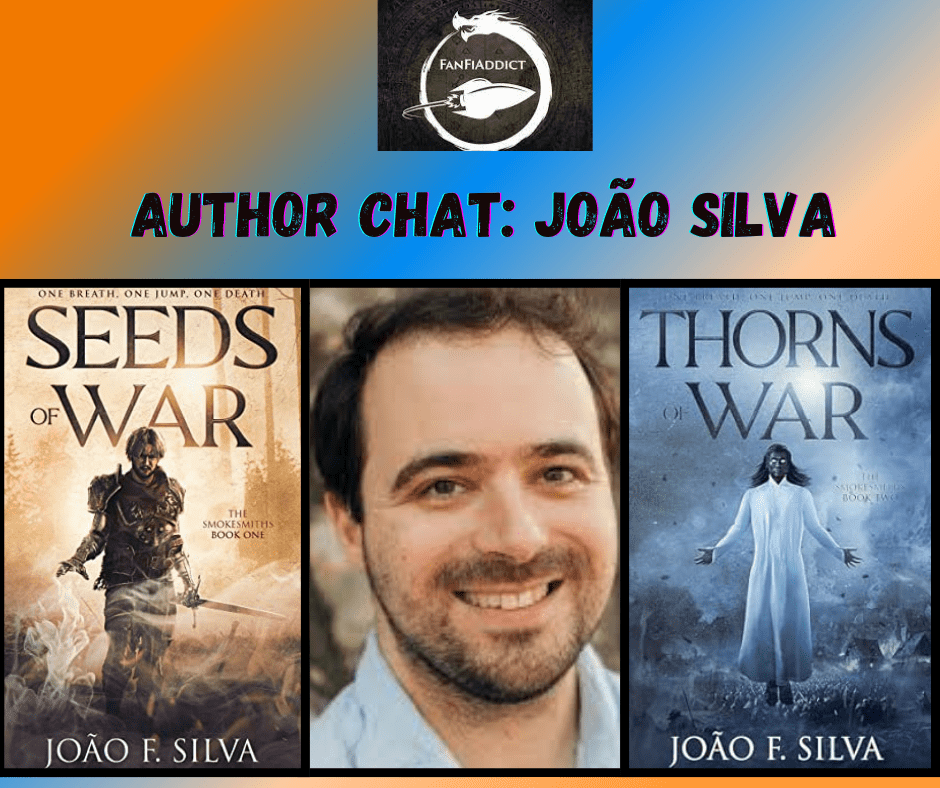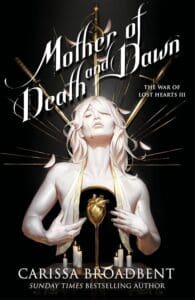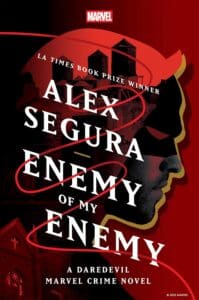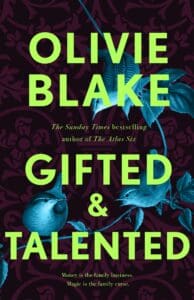
Author bio (in his own words):
João F. Silva was born in a small town in Portugal but now lives in London, with his three feline co-workers/bosses. His debut novel Seeds of War won the Best Indie Debut of 2023 at the FanFiAddict Awards. His short fiction has been published in Grimdark Magazine and Haven Speculative.
Thorns of War is out on 5th of May – See the end of the interview for links to buy!
Q1) Hi João, thanks for chatting. Thorns of War, Book 2 of the award-winning Smokesmiths series (Book 3 if you include the prequel novella Ruins of Smoke, not sure of my numbering system here, ahem) is out this week as I write on the 5th of May. Can you give a brief synopsis of it that kind of makes sense for those who haven’t read Book 1 as well? I always ask authors to do this and honestly I would hate to be asked this myself so the best of luck.
When I first set out to write Thorns of War, I immediately knew I wanted it to be a gift to everyone who liked or loved Seeds of War, which means I’m doubling down on all the things that people tend to find cool about the series: characters going through even worse perils than they did in book one, the magic system being explored and developed further, the world expanding a bit, and the surprise elements that came at the end of book one take on a whole new dimension. Essentially, I wanted this to hit all the notes that Seeds of War did, but harder, faster, better and stronger. Now, I don’t know if I was able to achieve that, but I had a pretty goal of not seeing expectations defrauded, so I’m hoping that whoever enjoyed Book One will think “this one is much better”.
Q2) Thorns of War has some pretty bonkers battles in. We’re talking a lot of armies on both sides converging with some crazy metaphysical stuff happening around them. How do you plan such massive battles?
Battles can’t happen without characters, and I think it’s easy for battles to be boring if they only contain mindless action and slaughter, with no stakes, no real dangerous and without real ties to the characters, so instead of focusing on strategy, I think about character development and conflict. I think about what the character wants and what stands in their way of achieving it. Usually, it’s another character. So, there’s conflict. And then I think about how that specific character would fight. I try as much as possible to think about the battle would affect them: what are their strengths and weaknesses? Are they ready to achieve their goals or do they need to fail first? What skills would they use? Do they think the battle is even winnable? I try to become the character and I have to say I’m not one of those authors who believes during action scenes there is no room for emotion. There certainly should be, especially when characters are constantly on the verge of dying: they experience everything to the most extreme: pain, fear, longing, rage.
When I do this while also knowing more or less how the battle should end, the battle almost writes itself. Sometimes it requires some tweaking, because maybe a certain character isn’t the best POV for a certain part of the battle, but usually the battles exist to serve the characters (or to screw them over), and not the other way around. I don’t write battles just because they are cool. I mean, I find them cool, but the characters certainly don’t. I’m not a big fan of the glorification of war, but I am a big fan of human self-determination, grit and unwillingness to give up fighting for what one’s beliefs are. And when you have characters that are strong willed on opposing sides, battles are inevitable, even if the characters don’t like them.
I also get easily bored if battles are just people fighting with swords and building shield walls, so I think about how I can write them slightly differently. I really like guerrilla warfare tactics, so I tend to include a lot of improvisation. I also think using explosives in battles is super cool and just adds another element of danger and unpredictability: a bit like the smoke magic itself, which can appear in many different forms. My biggest inspirations for battle scenes are John Gwynne, Joe Abercrombie, and Brandon Sanderson. I really like the way they craft battle scenes. Gwynne is epic in the hand to hand combat scenes, Abercrombie shines in the tactical side of things as well as the character emotions, and Sanderson just brings it all to a higher plane with things that would only be possible in fantasy novels: epic in scale but also in his use of the fantastic elements.
Q3) Your series really puts its characters through a lot, and in this book a couple of the fan favourites – Gimlore and Rednow – go through some extremely traumatic experiences (one in particular that was very hard to read). How do you ensure that the trauma they go through is true to the characters, and not simply there to shock?
This is extremely tricky and the true answer is… I don’t know. I just do my absolute best and hope it comes across in an honest way. But if we’re being honest: I’m sure there will be people who may say it’s only for shock value, while others will swear it isn’t. Everyone has different thresholds of what they consider honest trauma versus shock value.
That being said, when something this deeply traumatic happens to characters, I do my best to make sure it scars them just like it would a real person. I know them as characters, so I have a pretty good idea about how they’d rest. They might momentarily forget about it because they have survival to worry about, but the trauma won’t really leave, and they deal with it in different ways, just like people would. Also, with real people, healing is a long process that takes time, so this will be my approach to these characters as well: it won’t be all fun and rosy in the next book. If anything, they collect traumas, and carry them all with them…
Q4) I’m fascinated by the approach you’ve taken with this series which is to focus on the underdogs of society – the repressed, the exiled, the unwanted etc. The central city to much of your plot in the first book is a place founded by refugees, etc. Why did you choose to centre your fantasy world from the perspectives of these kinds of characters?
I think there are two answers to this. On a more surface level, when I was first plotting the story, I really wanted to avoid the typical medieval fantasy character tropes: the farmboy who is prophesized to be a kind or save the world; the noble king who has been stripped off his throne. There’s the idea that nobility is something characters strive for. I don’t have an issue with these narratives at all, and I even enjoy many of them.
I grew up in a country with no monarchy, and I think a lot of people disagree with monarchy or don’t like the fact that someone is supposedly more noble than everybody else, so why do we enjoy these narratives? Why are there so many stories about kings, queens, princes and princesses? And why are they all wealthy, with powerful knights willing to die for them?
I actively sought to write the absolute opposite of all that. It’s still a monarchic system, but whoever reads the books knows exactly what happens to tends to happen to kings and queens and just in what light they are portrayed. I asked myself: what is the absolute opposite of the farm boy trope? And my answer was: instead of a young boy, an old man. Elderly men are a lot of the times underestimated, told they are beyond their years, but I’ve found some of my favourite people to be really wise old men. I also found that mothers to be extremely underrepresented in fantasy, as are non-traditional families. And even when mothers appear in books, they are always nurturing; they essentially are there as a placeholder character, not as a main character, and almost only identified not by who they are as people but by the fact that they are mothers. So, I knew I wanted to write about a middle-aged single mother who is SO MUCH more than just a mother.
As for the rest, as I was tired of legions dying for kings and queens, I wanted to bring the spotlight to them: who even are they? Who is in the front lines? Who loses the most from war and conflicts in general? These are the people I’m interested in knowing. The fact that they have gone through all of that already immediately makes them more interesting to me because they have a history, a backstory. They are hardened by life.
I have had the pleasure of befriending actual refugees who have fled countries that were destroyed by war. Unfortunately, I saw them suffer for their loved ones, even when they, themselves, are already safe. Every time there is war, there are exiled people and refugees, and I found that there weren’t enough stories with them in the direct spotlight, so I wanted to do just that.
On top of that, most of the characters in the series are facing some form of displacement or struggling with the concept of home. This is something I’ve been through as an immigrant myself. I came into the UK with very little to my person and had to dig deep in the early days to make ends meet. And even now that I’ve been here for more than seven years, I still struggle with a sense of belonging. I’m culturally different, and while I’m now used to it, can I ever really call this place home? Whenever I go back to Portugal, I have the opposite feeling: it’s supposed to be home, and it’s a place I miss, but it also doesn’t quite feel like that anymore, so it’s like ‘home’ to me is now somewhere in between, in a limbo, surrounded by friends who are displaced like me, hoping to get a better life.
It’s also because of this that I really leaned on the tropes of found family: when you’re in the gutter, displaced, and mentally vulnerable, you hold on to those around you who are sharing the same fate. I’d argue it is quite possible to choose your own family this way.
Q5) Alongside all the smoke magic and politics and characters arcs and all the rest, there is a separate thing going on in this series that is part Lovecraftian/cosmic horror in nature – all ancient, all-powerful gods and part almost sci-fi, with the idea of bending time and space itself. This is really noticeable in Thorns of War – some of the crazier battles are almost metaphysical in nature. Where did this weirder aspect of your books come from, and why did you want it to be so central to your writing?
It all started with Orberesis’ character. He is a petty thief who is pretending to be a God, and that was my subversion of the superman character archetype, who are seen almost like gods: Gandalf, Aslan, etc. These can of course be done remarkably well, and the archetype’s direct allegorical ties to Christianity itself doesn’t bother me, but I knew I wanted to do a subversion of that. Obviously, religion is very important in out world. It still is! At the same time, throughout history, we’ve seen religion used time and time again to justify violence and massacres and even genocide. We’ve also seen people from religious orders exploiting those of said faith to attain physical means and, in many cases, extreme wealth.
I was raised Catholic, but have been an atheist for many years. I really respect religion in all forms. I have friends of all faiths, but I think looking back at those examples I gave, I wanted to convey just how evil I think some of those people were when they should be almost saintly instead. So, after working on Orberesis’ character as a subversion of the super almighty god trope, I wanted to go deeper and confront the same so-called evil I found by studying religious history. In a fantasy world, what would it be like if gods were not here to forgive our sins, to save our souls or take us to heaven? What if they were here exactly with the same flaws humans have? Would people fight them? And how exactly does one fight a god?
I never really thought about the metaphysical aspect of it, or that it could be considered ‘weird’, I just thought what divinity means, and how it would be applied to this world in particular, with these specific characters. I guess the metaphysical element was almost certainly going to be a given, since you can’t really have gods portrayed convincingly without a certain mysticism about them.
Q6) I think it’s safe to say the Smokesmiths series has really caught fire with indie fantasy readers and, if you believe it or not, I didn’t actually mean that as a pun when I first wrote that sentence. Why do you think it has struck such a chord with readers?
I have no idea why, but I’m really thankful it did. Even though there are aspects of the book that make it less of a mainstream pull in the current market landscape, like the slightly gritty tone of it and the fact that it isn’t romantasy or cosy fantasy or litRPG, I still try to have it a solid enough story for what it is. There are the typical things fantasy fans always love: crazy magic, unique creatures, battles, and political shenanigans, but there are also some mystery subplots, very light romantic subplots, and there are some trope subversions and unique concepts that I believe haven’t been done a lot. Hopefully, there’s also a lot to be found “under the hood” in terms of emotional impact, themes, and meaning, if the surface level layers aren’t enough for readers. I’d like to think the pacing and the quasi-cliffhanger endings leave the readers want more. Also, everybody tends to love underdog stories, and they’ll find nothing but that in The Smokesmiths!
Q7) Now for the serious question – if you could have a smokesmith’s special power, what would it be?
I would probably veto any smokesmith powers because as cool as they can be, they shorten the users’ lifespans pretty rapidly, and I’d like to live a bit longer, so… no thanks!
Q8) An easy get-out… but also pretty fair to be honest.
I want to ask you now about your indie publishing experience. You’ve written very transparently and honestly on your blog and social media about your indie experience so far. Essentially, if I can summarise and perhaps over-simplify, you have had very good first year revenues, been critically lauded, had a lot of very cool stuff happen, and yet you’re still in the red financially for the time being. What lessons have you taken away from this, both positive and negative, for the difficulties that indie authors face?
The main take-away is that there are no short-cuts to success and that self-publishing is a long-term journey. Making short-sighted decisions seeking to put sales before readers or early profits before growth can even be detrimental. Of course, it’s nerve-wrecking and financially devastating to invest so much time and money into something you love only to find out it hasn’t been financially worthwhile, but self-publishing is a lot like being an entrepreneur, and very few new companies can have profits on their first year. So, the first year (maybe even first two years) should be to grow, lay the foundation, grow the reader base and to have as many people pick up the books as possible, even if that doesn’t lead to immediate profits
People say it’s a marathon, not a sprint, but I’d say it’s more like an ultra-marathon. In the rain. While hiking. A giant mountain. There will be ups and downs, but if you stick to it, learn the business as much as you hone the craft, you will see some form of success. It’s harder to find success as indie authors because discoverability is very hard, which is why marketing is so important, almost as important as having a good book in the first place. But it’s an ultra-marathon, so don’t think about it in terms of “I only made one sale today” or “haven’t made any sales this week”. Instead, make achievable goals for the short and medium term and make a plan to reach them. That’s the beauty of indie publishing: you are only dependent on yourself, not on any publishers or anybody else. And you can always try to do better, learn more, and work harder.
I’m only thinking about success without comparing myself to others: I’m comparing myself to where I’d like to be in five years’ time. My goal is to earn around the equivalent of a minimum wage part time job five years’ time, so all I think about is how far I am from that, and what I can do in order to get there. It’s a lot of work, but self-publishing is a business. And if authors only write and don’t think about the business, they’re only really doing half of the job.
Q9) Can you tell us anything about Book 3 of the Smokesmiths?
I can say that if you already thought that Book Two was an escalation from Book One, I can promise Book Three will be even more ambitious and crazy. The ending of Book Two should give people a pretty good idea of just how insane things are going to get for these characters. Oh, and the prequel novella, Ruins of Smoke, might hold some clues as well…
Q10) Nice and intriguing, the way we like it. Finally, beyond the Smokesmiths series, what other ideas are bubbling away in the Silva furnace? (I tried another pun there, and my lack of knowledge of how to make metals really let me down, I think)
The Silva furnace is quite busy with the Smokesmiths, and I’m thinking of at least four books in this series as my priority (maybe even more than four), but I have many ideas for new books as well as books that are already plotted or even drafted. One is a medieval horror novel set in Portugal, another is a solarpunk sci-fi story set in an alternative near future. I’ve also got other novels and novellas plotted in the same world as The Smokesmiths, but with different characters. And I also have a progression fantasy series which I’m planning to write under a pen name as a serialised story to be published on RoyalRoad. These are just some of the ideas… I’ve also got a retro space opera already drafted, as well as a more classic YA fantasy. I just don’t have enough time for all this!
Thanks for chatting João!
See here for all the links to buy Seeds of War
See here to pre-order Thorns of War on Amazon
Check out his website here




Leave a Reply